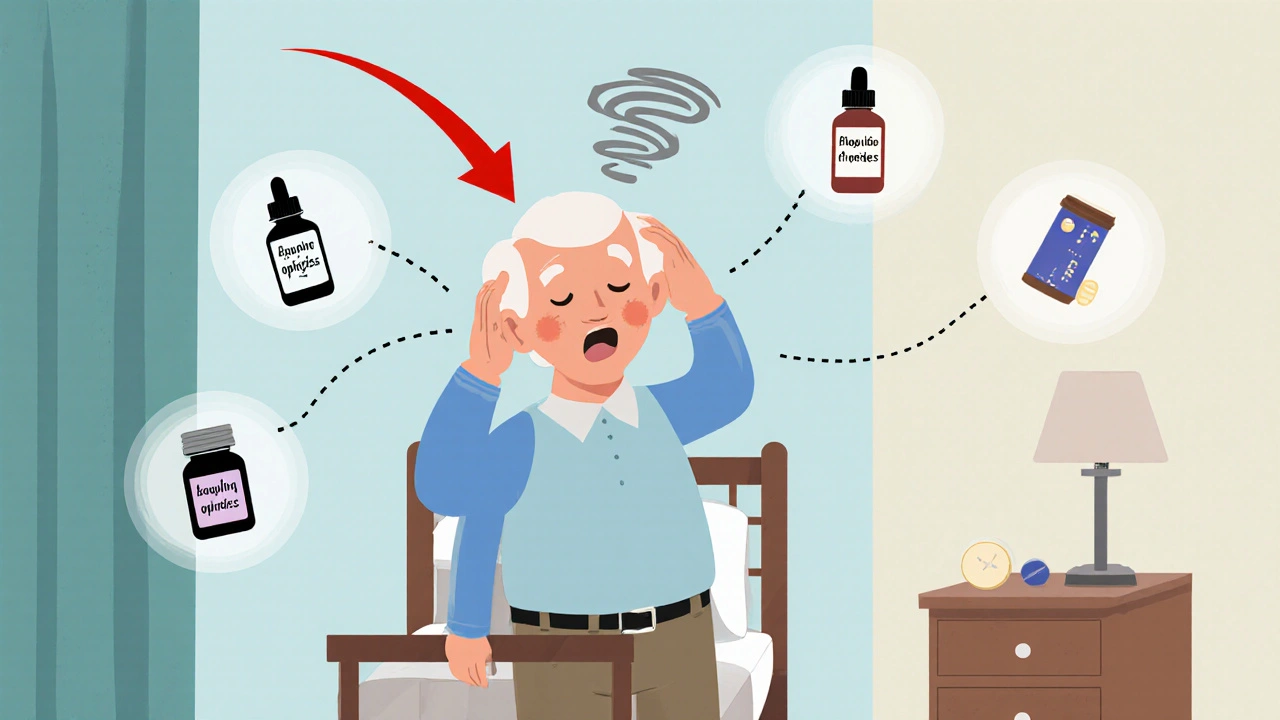
Medication‑Induced Orthostatic Hypotension: Why Standing Makes You Dizzy
Learn why certain drugs cause a sudden drop in blood pressure when you stand, how to spot the symptoms, and what steps-both medical and lifestyle-can keep you steady.
When you stand up too fast and feel dizzy, lightheaded, or like the room is spinning, it might not just be bad luck—it could be medication-induced orthostatic hypotension, a sudden drop in blood pressure caused by certain drugs when moving from sitting or lying down to standing. Also known as drug-related postural hypotension, this condition happens because your body can’t adjust blood flow fast enough, leaving your brain briefly starved of oxygen. It’s not rare. In fact, up to 30% of older adults on certain heart or blood pressure meds experience it at least once a week.
This isn’t just about feeling a little woozy. orthostatic hypotension, a drop in systolic blood pressure of 20 mm Hg or more within 3 minutes of standing can lead to falls, fractures, and hospital visits. The drugs most often linked to it include beta blockers, medications like carvedilol and metoprolol used for high blood pressure and heart conditions, ACE inhibitors, such as captopril, which relax blood vessels, and even some antidepressants and ED drugs. If you’re taking any of these and feel faint when standing, it’s not something to ignore.
What makes this tricky is that the symptoms often come on slowly. You might think you’re just getting older or tired. But if you’re standing up and seeing spots, your knees go weak, or you nearly black out after getting out of bed, your meds might be the culprit. It’s not always about the dose—sometimes it’s the mix. A blood pressure pill plus a diuretic plus an anti-anxiety drug? That combo can be a perfect storm. Even something as simple as drinking alcohol with these drugs can make it worse.
The good news? You don’t have to live with it. Simple changes—like standing up slowly, drinking more water, wearing compression socks, or adjusting your medication timing—can make a huge difference. Your doctor can check your blood pressure in different positions, review your full list of meds, and sometimes switch you to a drug that’s less likely to cause this drop. It’s not about stopping treatment—it’s about fine-tuning it.
Below, you’ll find real-world guides from people who’ve dealt with this exact issue. Some explain how they spotted the link between their meds and dizziness. Others compare drugs like Lopressor and Carvedilol to find safer alternatives. You’ll see how things like alcohol, diet, and even herbal teas can play a role. No fluff. No guesswork. Just clear, practical info from people who’ve been there—and figured out how to stay steady on their feet.

Learn why certain drugs cause a sudden drop in blood pressure when you stand, how to spot the symptoms, and what steps-both medical and lifestyle-can keep you steady.